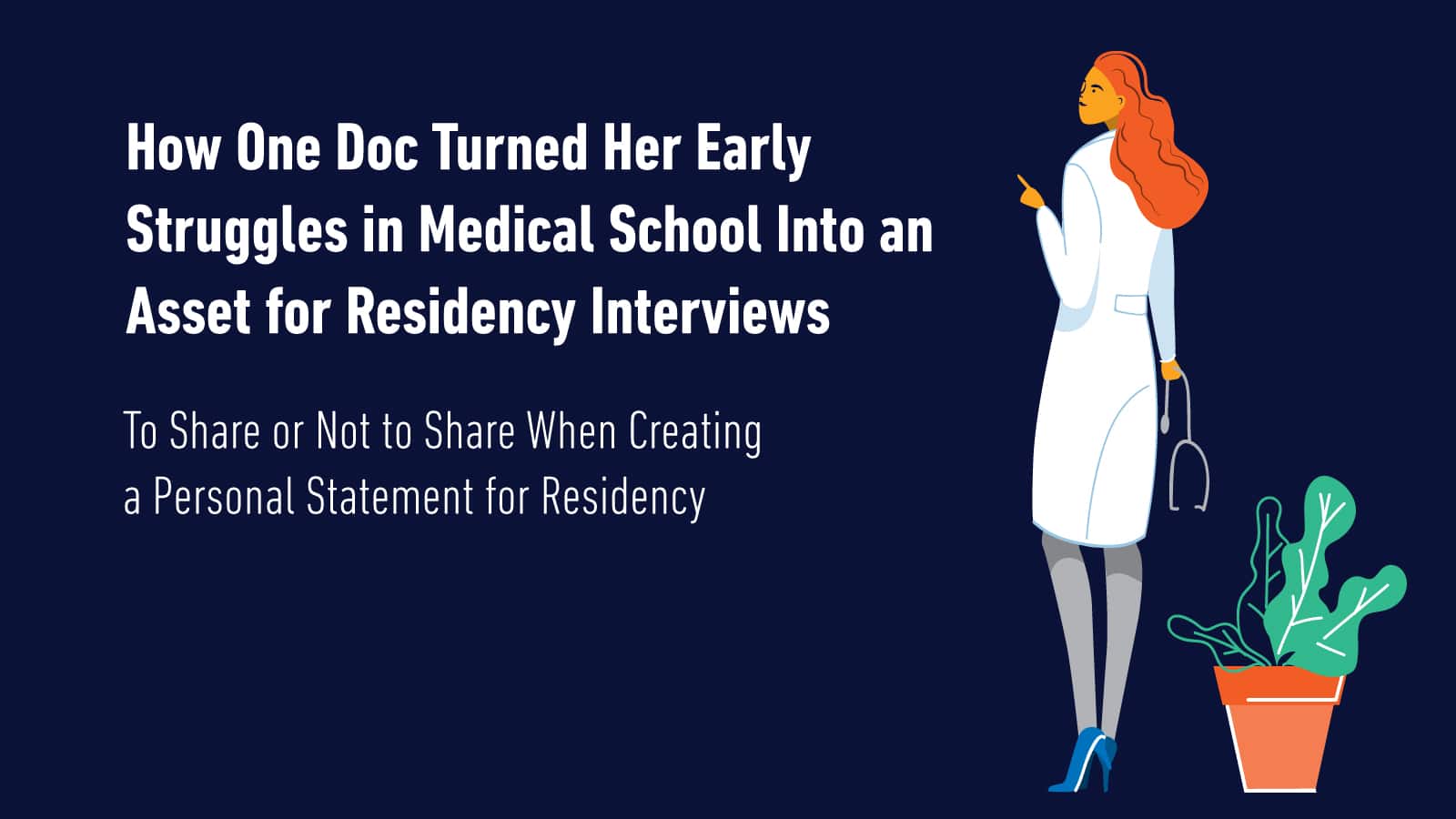To Share or Not to Share When Creating a Personal Statement for Residency
This article is the sixth in a series by Dr. MJ, a graduate of an eastern US allopathic medical school who worked closely with STATMed Learning. Here, she shares her personal struggles and the steps she took to succeed in med school. This series aims to give a voice to what it’s like to struggle in med school and help share strategies to rebuild your self-esteem and regain your equilibrium.
When the time came for me to write the personal statement for my residency application, it took me a while to decide whether to share my early struggles in medical school. On the one hand, I could see the benefit of discussing why I had chosen to pursue psychiatry instead of rehashing aspects of the past. After all, I knew some psych residency programs don’t focus as heavily on preclinical grades when evaluating applications, so why bring it up again? However, a bigger part of me felt like I needed to address my initial academic struggles because it was evident on my transcript, and I wanted to explain it. So, I decided to start writing about my early medical school experience and see how it flowed.
Sharing My Struggles in Medical School
Once I started writing, I realized something: Discussing those initial challenges showed me that I had a story to tell, and I wanted to tell it. Furthermore, I started to understand how important it was for me to tell that story on my own terms. I didn’t want to be asked about those difficulties during an interview and go on the defensive. I wanted to be in control of the narrative. Also, while writing my personal statement, I discovered how proud I was of getting through that tough beginning. I could have given up; I could have quit so many times. But I didn’t. I found a way to get through it. It definitely required some outside help, and it wasn’t always pretty, but I did it – I earned my medical degree.
It’s not my place to tell someone whether they should discuss their academic challenges in their personal statement. However, I don’t think you should be afraid to address them or even be embarrassed by them. My biggest piece of advice is to make sure the statement is not about the struggles themselves but about how you worked through them and found a way to succeed. And I think that is an impressive story to tell.
Interested in learning more about our study strategies? Explore our blog and YouTube channel for more strategies and insights.
